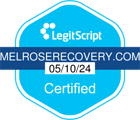Nutrition Therapy For Addiction Recovery in Los Angeles
You’ve decided to take an important step in your life and enter rehab for drug and alcohol addiction. Not only are you changing your life, you might be saving it, too. It’s no surprise if you have a lot of questions about rehab. Are you going to be stuck in therapy sessions all day? Will you be allowed to talk to your family? What’s nutrition therapy, and how can it help you?
What Is Nutrition Therapy?
You may have heard of psychotherapy and group therapy, but rehab involves a lot more than just talking. Yes, you’ll take part in individual therapy and family therapy sessions. You’ll talk, and you’ll also listen. However, addiction treatment involves so much more.
Many users don’t think about food or eating when they’re caught up in addiction. Instead, their daily lives are consumed with using. As a result, their health often suffers, with many of them losing excess weight from not eating properly. Nutrition therapy Los Angeles offers shows residents how important it is to fuel their bodies with healthy, nutritious foods.
During rehab, you’ll learn how to make good food choices that contribute to a strong, healthy body. The better you feel in rehab, the more active of a participant you’ll be. This only increases the benefits you’ll gain from your treatment.
Growing Stronger With Nutrition Therapy
You may work with a dietitian or nutrition coach. In many cases, the nutrition therapy Los Angeles offers will begin during detox when residents begin to have an appetite after not having one for so long. It will continue as you go through rehab. Paired with fitness activities, you’ll grow stronger mentally and physically.

Nutrition education is important for taking part in a physical therapy program that involves activities such as hiking or team sports. It also improves your focus and concentration, which are necessary for counseling sessions.
Eating well sets a solid foundation for ongoing recovery. While this doesn’t cure addiction, it contributes to treatment by helping you maintain your sobriety.
The good feelings you experience when you exercise and eat right can replace those negative emotions that you often felt when using. People who are down on themselves are more likely to fall into the trap of drug and alcohol abuse. When you feel great about yourself, you want those great feelings to continue.
By taking what you learn in nutrition therapy, you can create a brighter future that doesn’t involve drugs and alcohol.
Your Transformation Start Here
The Best Nutrition Therapy Program Los Angeles Can Offer
Our services include:
- Adventure therapy program
- Art therapy program
- Men’s addiction rehab program
- Women’s addiction rehab program
We combine evidence-based therapy with holistic treatments that let you express yourself or get you moving. Whether it’s opiate or alcohol abuse, you can overcome it and get back to living.
A high-quality detox and rehab center like Melrose Recovery Group can help you change your life. With our nutrition therapy and substance abuse treatment, residents go on to long-term recovery. Contact us today for more information.
Taking the First Step Toward Addiction Recovery
At Melrose Recovery, our addiction specialists strive for the highest quality of care and are here to change lives for the better









